#vitamin B1 foods
Text
Health benefits, side effects, source and intake of vitamin b1 (thiamine)
Health benefits of vitamin b1
Thiamine is required for metabolic reactions including the breakdown of glucose and amino acid. thiamine helps to prevent complications in the stomach, small and large intestine, heart, muscle, nervous system and brain. Vitamin B1 may involved in and out of electrolyte flow in muscle and nerve cells and helps prevent beriberi , which involves disorders related…
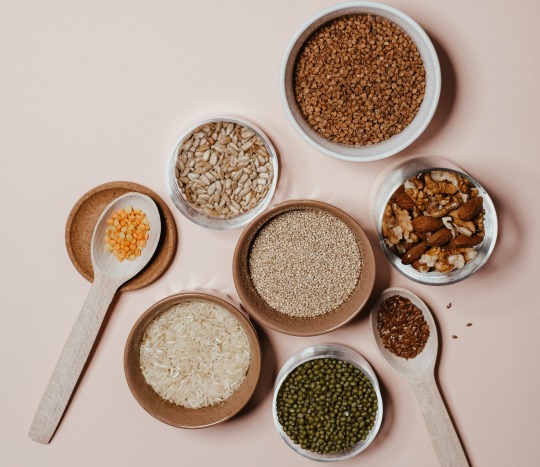
View On WordPress
#benefits of vitamin b1#best source of vitamin b1#excess intake of vitamin b1#health benefits of vitamin b1#vitamin b1#vitamin b1 benefits#vitamin b1 benefits and side effects#vitamin b1 deficiency#vitamin b1 deficiency symptoms#vitamin b1 dosage for adults#vitamin b1 side effects#vitamin b1 thiamine#vitamin b1 foods#what are the benefits of vitamin b1
0 notes
Note
hey strange! So I know you’ve fed your cats the Carna4 brand for a while (correct me if I’m wrong or if thats changed) and I’ve been feeding my cat that brand also for about a year now ever since I got him (he’s 2 yo). He recently had a seizure and we discovered its due to his diet lacking thiamine/B1 vitamins. Bc Carna4 has raw fish in its ingredients it cancels out the vitamins and could leave your cat severely deficient, as mine is, according to the doc and the MRI scan. I thought I should inform you bc this has been terrifying and I don’t wish it on anyone or any cat. Pls feel free to message me if you need more info I’d be happy to share! Also my cat is an orange cat and I know breeds and genetics are a thing so maybe your cats are totally fine but I still thought you should know.
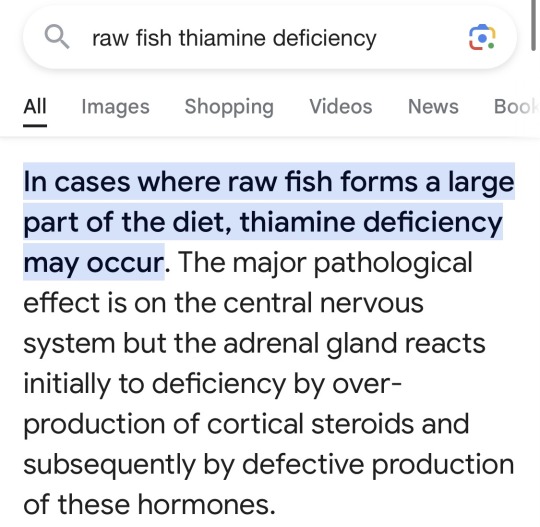
Thank you for sharing this! Wishing your orange boy a full recovery!!
I had no idea this was a thing. I also feed my cats other raw foods and treats with different protein sources but I think after reading this I will diversify their diet even more.
1K notes
·
View notes
Text
What Advantages You can Get from Vitamin B1

Thiamine is also called Vitamin B1. It is a water soluble vitamin that is found in various plants and animal-derived foods. As it is a water soluble vitamin, it breaks down rapidly once it gets consumed.
Mainly, Vitamin B1 is stored in the liver, but the liver only stores this vitamin for approximately 18 days. Therefore, it is recommended to consume VITAMIN B1 regularly.
Eating foods high in thiamine provides a lot of benefits both for mental and physical health. However, the human body doesn’t produce this vitamin by itself. Therefore, you have to collect it from other foods. Besides, thiamine is quite easy to get from food. So you can overcome thiamine deficiency easily.
Some of the healthiest Vitamin B1 rich foods are; sea vegetables, yeasts, green veggies, beans, seeds, and fish. It provides a lot of health benefits that include;
Increase Metabolism Rate and energy Levels
Thiamine or vitamin B1 helps to extract energy from foods. It extracts energy by transforming nutrients into usable energy in the form of ATP.
Foods that comprise VITAMIN B1 help to convert molecules into carbohydrates and proteins. Thus, the body can utilize these macronutrients to perform multiple functions.
Thiamine also plays a vital role in producing red blood cells that are used for ongoing energy. The enzymatic form of Vitamin B1 has two types of metabolic reactions that help support fat metabolism and carbohydrate.
Prevent Muscle Weakness and Soreness
Low thiamine intake is linked with restless leg syndrome, weakness, soreness, tenderness, numbness, and fluid retention. Vitamin B1 is beneficial for preventing these symptoms in people who have diabetes.
Also, it helps in nerve function and protects the outer coating of the nerve. It is helpful in improving the recovery time after exercise and reduces the growth of lactic acid that causes soreness.
Promote Neurological Health
Intaking foods with VITAMIN B1 is the natural way to promote cognitive health. Lack of this vitamin may cause dementia, confusion, and Alzheimer’s disease.
However, these syndromes are common in people who consume excessive alcohol. It happens due to dehydration and improper diet.
Elderly adults with Alzheimer’s disease have a lower level of thiamine in the blood. The administration of thiamine has claimed that Vitamin B1 helps support cognitive abilities.
People who need higher thiamine consumption can benefit from eating more foods with Vitamin B1. People with diabetes, HIV-positive, pregnant, low-calorie diets, or breastfeeding women can consume Vitamin B1 supplements or thiamine-enriched foods.
#Vitamin B1#healthyhey#healthy supplements#HealthyHey Nutrition#Nutrition#nutritional supplements in india#Nutrition Suppliment#supplements#Food Supplements In India
1 note
·
View note
Text
Foods You Can Eat Instead of Taking Vitamins and Supplements 🍎🥥🥦🥑🍌
Vitamin A: Carrots, sweet potatoes, spinach, kale.
B Vitamins: Whole grains, meat, eggs, nuts, legumes.
Vitamin B1 (Thiamine): Whole grains, legumes, nuts, pork, fortified cereals.
Vitamin B2 (Riboflavin): Dairy products, lean meats, almonds, leafy greens.
Vitamin B3 (Niacin): Poultry, fish, nuts, legumes, whole grains.
Vitamin B5 (Pantothenic Acid): Meat, poultry, eggs, avocado, whole grains.
B6: Chicken, turkey, fish, bananas, chickpeas.
Folate (Vitamin B9): Leafy greens, legumes, citrus fruits, fortified grains.
Vitamin B12: Animal products (meat, fish, dairy), fortified plant-based foods.
Vitamin C: Citrus fruits, strawberries, bell peppers.
Vitamin D: Fatty fish (salmon, mackerel), fortified dairy products, sunlight.
Vitamin E: Sunflower seeds, almonds, vegetable oils, nuts, spinach, broccoli.
Vitamin F (Essential Fatty Acids): Fatty fish, flaxseeds, chia seeds, walnuts.
Vitamin H (Biotin): Eggs, nuts, sweet potatoes, salmon, avocado.
Vitamin K: Leafy greens (kale, spinach), broccoli, Brussels sprouts.
Vitamin K2: Fermented foods (natto, cheese), animal products, leafy greens.
Vitamin L1 (Anthranilic Acid): Cruciferous vegetables (cabbage, cauliflower), legumes.
Vitamin P (Bioflavonoids): Citrus fruits, berries, onions, green tea.
Vitamin Q (Ubiquinone): Fatty fish, organ meats, spinach, cauliflower.
Vitamin T (L-carnitine): Red meat, poultry, fish, dairy products.
Vitamin U (S-Methylmethionine): Cabbage, broccoli, Brussels sprouts.
Betaine: Beets, spinach, whole grains, seafood.
Boron: Fruits (apples, pears), legumes, nuts, avocado.
Calcium: Dairy products, leafy greens (kale, collard greens), almonds.
Carnosine: Beef, poultry, fish.
Carnitine: Red meat, dairy products, fish.
Catechins: Green tea, black tea, dark chocolate.
Choline: Eggs, liver, beef, broccoli, soybeans.
Creatine: Red meat, fish, poultry.
Chromium: Broccoli, whole grains, nuts, brewer's yeast.
Chondroitin: Cartilage-rich foods (bone broth, connective tissue of meat).
Copper: Shellfish, nuts, seeds, organ meats, lentils.
Coenzyme Q10 (CoQ10): Fatty fish, organ meats, nuts, soybean oil.
Ellagic Acid: Berries (strawberries, raspberries), pomegranates.
Glucosinolates: Cruciferous vegetables (cabbage, broccoli, cauliflower).
Glucosamine: Shellfish (shrimp, crab), bone broth, animal connective tissues.
Glutamine: Dairy products, meat, poultry, cabbage.
Inositol: Citrus fruits, beans, nuts, whole grains.
Iodine: Seafood, iodized salt, dairy products.
Iron: Red meat, poultry, beans, lentils, spinach.
L-Theanine: Mushrooms, black tea, white tea, guayusa.
Lignans: Flaxseeds, whole grains, cruciferous vegetables.
Lutein and Zeaxanthin: Leafy greens (spinach, kale), corn, eggs.
Lycopene: Tomatoes, watermelon, pink grapefruit.
Magnesium: Spinach, nuts, seeds, whole grains, beans.
Manganese: Nuts, seeds, whole grains, leafy greens, tea.
Melatonin: Cherries, grapes, tomatoes.
Omega-3 fatty acids: Flaxseeds, chia seeds, walnuts, fatty fish.
PABA (Para-Aminobenzoic Acid): Whole grains, eggs, organ meats.
Pantothenic Acid (Vitamin B5): Meat, poultry, fish, whole grains, avocado
Pectin: Apples, citrus fruits, berries, pears.
Phosphorus: Dairy products, meat, poultry, fish, nuts.
Prebiotics: Garlic, onions, leeks, asparagus, bananas (unripe), oats, apples, barley, flaxseeds, seaweed.
Probiotics: Yogurt, kefir, fermented foods (sauerkraut, kimchi).
Potassium: Bananas, oranges, potatoes, spinach, yogurt.
Polyphenols: Berries, dark chocolate, red wine, tea.
Quercetin: Apples, onions, berries, citrus fruits.
Resveratrol: Red grapes, red wine, berries, peanuts.
Rutin: Buckwheat, citrus fruits, figs, apples.
Selenium: Brazil nuts, seafood, poultry, eggs.
Silica: Whole grains, oats, brown rice, leafy greens.
Sulforaphane: Cruciferous vegetables (broccoli, Brussels sprouts), cabbage.
Taurine: Meat, seafood, dairy products.
Theanine: Green tea, black tea, certain mushrooms.
Tyrosine: Meat, fish, dairy products, nuts, seeds.
Vanadium: Mushrooms, shellfish, dill, parsley, black pepper.
Zeatin: Whole grains, legumes, nuts, seeds.
Zinc: Oysters, beef, poultry, beans, nuts, whole grains.
#women health#health and wellness#healthy diet#healthy living#healthy lifestyle#womens health#health#health tips#wellness#levelupjourney#dream girl guide#dream girl tips#dream girl journey#health is wealth#clean girl aesthetic#clean girl#it girl#nutrition#supplements#organic#food#nutrients#healthyhabits#healthy life tips#self love journey#self love#dream life#dream girl
2K notes
·
View notes
Text

Hydration is so very important to our well-being! It's easy to overlook & even easier in the heat we are getting this summer.
.
If you feel likely your floating from all the water you've been drinking, why not switch things up for some watermelon!
.
Watermelon is a great way to help keep yourself cool & hydrated.
.
According to Chinese medicine, watermelon is used to help clear summer heat & generate fluids!
.
It naturally helps us to cool down, it moistens our body from the inside out & helps promote urination through its action of keeping us hydrated. This is important because it helps us to flush out toxins!
.
There are so many health benefits that are gained from eating watermelon too:
.
🍉it's a very good source of vitamin C, beta-carotene and lycopene (antioxidants)
🍉through the beta-carotene, we get our vitamin A
🍉it's a good source of vitamin B1, B6, pantothenic acid, biotin, magnesium, potassium & fiber
🍉it's a very nutrient dense food given it's high ratio of nutrients to relatively few calories
🍉it may lower inflammation + oxidative stress thanks to the vitamin C + lycopene
🍉benefits your skin + hair thanks to the vitamin A + C
🍉benefits digestion thanks to the fiber it contains
.
It’s naturally sweet flavour makes it a favourite treat on hot days. 🍉😋🍉
.
It can be eaten as is, turned into popsicle, added to salads, pureed and so much more!
.
What are your favourite ways to hydrate and cool down on a hot day??
Did you know the water content for watermelon is 92%?! This was news to me, but it explains why it's great for hydrating!
7 notes
·
View notes
Text
hi everyone, i'm ari (she/they), i just turned 18 and i feel extremely lost. i noticed a lot of people do daily blogs here so i will try too, maybe it will motivate me, hopefully...
currently im in an art highschool (fashion design departament) in my last year. school starts in like a week and a half and i need to get prepared (glow up a lil, honestly gonna try to do wonyoungism).
i love anything to do with arts and sports, movies, books, learning languages, history, mythology, cooking, video games, playing instruments...
ill share my daily goals and thoughts (maybe studying tips or resources too but not sure since im not that good and im just starting). ill make sure to reblogg useful stuff tho (tips and motivation mostly). i'm open to any criticism, so if u have something to say, please dont hold back.
LONG TERM GOALS:
・❥・ learn discipline;
・❥・ be able to study for various hours;
・❥・ straight 10s grades;
・❥・ do my final project;
・❥・ straight 10s on final exams;
・❥・ learn polish B1 level;
・❥・ take care of my body, mind and soul;
・❥・ find a major suitable for me (rn thinking of law, marketing, economics)
・❥・ get driving license;
・❥・ be more positive;
・❥・ get confident;
・❥・ be my dream self.
DAILY:
・❥・ do morning and night routine;
・❥・ go sleep early( need to fix my sleeping schedule);
・❥・ study minimum 30 min;
・❥・ read minimum 10 pages;
・❥・ polish;
・❥・ 2 l of water;
・❥・ fuel body with healthy food;
・❥・ vitamins;
・❥・ journal.
#healthy girl#wellness girl#law of attraction#girl journal#matcha girl#student life#it girl journey#self growth#becoming her
4 notes
·
View notes
Text
What can be eaten for a healthy breakfast in the morning?



Oatmeal
Benefits: Regulates digestion and helps keep you full longer.
Vitamins: B vitamins (B1, B5, B6), iron, magnesium, zinc.
Greek Yogurt
Benefits: Provides high protein for satiety; contains probiotics for digestive health.
Vitamins: Calcium, B vitamins (B2, B12), vitamin D (in some varieties).
Whole Grain Bread
Benefits: Rich in fiber, supports digestive health, and helps stabilize blood sugar levels.
Vitamins: B vitamins (B1, B3, B5), iron, magnesium.
Fruits
Benefits: Rich in vitamins, minerals, and antioxidants; supports immune health.
Vitamins: Vitamin C (especially citrus fruits and strawberries), potassium, vitamin A (in some fruits).
Eggs
Benefits: Provides high-quality protein and healthy fats; supports brain function.
Vitamins: Vitamin A, vitamin D, vitamin B12, choline.
Avocado
Benefits: Contains healthy fats and fiber; supports heart health and improves digestion.
Vitamins: Vitamin E, vitamin K, vitamin C, B vitamins (B5, B6).
Nuts and Seeds
Benefits: Provides healthy fats, protein, and fiber; supports heart health.
Vitamins: Vitamin E, magnesium, B vitamins (especially B6).
Smoothie
Benefits: High in vitamins and minerals, especially when enriched with green leafy vegetables.
Vitamins: Vitamin C (from fruits), vitamin A and K (from green leafy vegetables).
Quinoa
Benefits: High in protein and fiber; helps with satiety and energy.
Vitamins: B vitamins (B1, B2, B6), iron, magnesium, phosphorus.
Chia Pudding
Benefits: Provides omega-3 fatty acids, fiber, and protein; supports digestion.
Vitamins: Vitamin E, B vitamins (B1, B3), calcium.
Vegetable Omelet
Benefits: Rich in protein and vitamins; provides satiety.
Vitamins: Vitamin A (from vegetables), vitamin C (from vegetables), B vitamins (from eggs).
Cottage Cheese
Benefits: High in protein and calcium; supports bone health.
Vitamins: Calcium, B vitamins (B2, B12).
Whole Grain Crackers
Benefits: Provides fiber and complex carbohydrates; supports digestion.
Vitamins: B vitamins (B1, B3), iron.
Milk and Plant-Based Milks
Benefits: Provides calcium and vitamin D; supports bone health.
Vitamins: Calcium, vitamin D (in milk and some plant-based milks).
These options ensure a balanced and nutritious breakfast!!
(If you are sensitive or allergic to any of the foods here, please do not consume)
(Photos are not mine)
#healthylifestyle#healthy diet#healthy food#healthy breakfast#health#health tips#healthy eating#food#breakfast
4 notes
·
View notes
Text
Thing's Rambles #1: Eggs
Eggs! You know them, you love them—at least I hope so, considering how awesome... Food?... They are. I think eggs are a category of their own. Ah, whatever, we're going out of topic.
(long shtick about eggs below, will bore u to death)
One of the reasons eggs, chicken eggs specifically, are so crucial to the past and modern day is because the birds who lay them can do so indefinitely as opposed to other birds who only lay a certain number at a time. So long as their nest is empty, presumably taken by predators (humans), then they can lay just about every day. In the industry, male chicks are basically useless, which results in a mass crush every day. Fortunately, scientists are working on changing the sex of the chick in the eggs. However, I don't know anything about that yet.
Speaking of eggs, a man somewhere in the 1970's conducted the '7 Country Study', his conclusion being that eggs raise the chances of CVD (cardiovascular disease, AKA heart attacks) by 17% due to the SatFat (saturated fat) and cholesterol. This, of course, raised panic and attention in the public, especially when the government set guidelines for saturated fat and cholesterol. While this link isn't necessarily 100% false, it is a clunking argument. Especially in comparison to the other study linking IR (insulin resistance) to CVD, which is also linked to high sugar and high carbohydrate consumption. And while it's still not an all-time cause, it's still true 90% of the time. Remember the '7 Country Study' I mentioned prior? It was actually conducted in 22 countries, except 15 of them proved to be against what the study was about, so he ditched them. What's even more baffling than this is that even after 50 years of study after study after study, these government guidelines are still in place. Eggs do not cause CVD, rather the exact opposite, and then some more.
I'm not completely sure what the nutrients that specifically fight against CVD are (mainly because they have unpronounceable names), but eggs still carry massive benefits for your skin, muscles, bones, organs, and even your brain! This is because of the many vitamins (especially vitamin B) and high protein. Time for the main part.
Laying it all out front, a whole egg contains: Vit A (has a part in yolk coloring), Vit E (good for the heart and skin), Vit K1, Vit B1, B2, B3, B5, B6, B12, and Vit D. Those are just the vitamins. Eggs also contain DHA (omega 3), which is for the brain; folate for degenerative disease; choline to burn fat and help against fatty liver; and lutein and zeaxanthin, which are beneficial for your eyes.
And then protein—my favorite part. It's amazing, really, because of its ability to help build protein tissues and the percentage of egg protein made into our protein. In comparison, we get 17% of its protein from soy, 16% from whey, 32% from meat or fish, and a whopping 48% from eggs. You can really see the difference between egg yolk and egg white when you take into consideration that egg white's percentage is merely 17%.
Alright, so now that we know we get a lot of protein from eggs, what do we do with that protein?
Well, how it works is that when our body receives protein, it either invests it into tissues (skin, muscles, bones) or energy (glucose). The ratio of how much protein is invested in tissues to glucose is actually dependent on the meal from which the protein is extracted. For example, when you get protein from meat, 30% of that protein goes into the development of your skin, muscles, bones, joints, etc. (tissues), and 70% of the protein becomes glucose (energy). For eggs, it's 49% for tissues and 51% for glucose, ranking it as the highest rate of protein for tissues, but only after breastmilk, which is a whole different and fascinating discussion.
So far, we've talked about why chicken eggs are special, scandals against them, and the great yet still incomplete benefits of them. Lastly, we will talk about egg quality.
-Is the price difference between cheap and expensive eggs worth it?
Absolutely! You'll be getting more bang for your buck. In fact, some suggest that buying the cheap ones makes you gain 40–60% less worth.
-Types of eggs: Pasture eggs are definitely the best type. The others are free-range eggs and no-cage eggs, etc.; eh, most of these are just marketing terms anyway.
-Yolk color; do they matter? Well, yes, but actually, no. They do, sure, but you can't really be too sure since farmers are prone to using artificial coloring.
-Grades: grade B eggs, grade A eggs, and grade AA eggs. Do these actually matter?
No. Grades are mostly based on cosmetics, which can hardly matter much when you whisk them up for baking. Plus, your grocery eggs are probably already grade A eggs.
All in all, the quality of eggs depends on what the chickens are fed and if they're ethically raised, but you can't control those factors. But what can you control? The way the eggs themselves are prepared.
Dr. Berg suggests the best method is cracking the egg on a lit pan, waiting until the whites turn into their white color but not too much, and then scrambling them. This way, you can optimize how much nutrition and protein you can squeeze out of your egg. Too tedious? Just scramble them normally.
I think the best part of eggs, despite how beneficial they are, is how relatively cheap and accessible they are. Don'tcha think?
P.S. Remember that omega 3 I told you about? The one that's good for your brain? That's a good omega. What's not a good omega is omega 6, specifically the oil restaurants use to fry eggs and such. This one actually increases the risk of CVD.
Time for fun facts!
Fun fact: The egg white has no fat.
Fun fact: You can get 101% of the choline that your body needs in a day with just 4 eggs.
Fun fact: 90% (approximate guess) of the good stuff is in the yolks, so yeah, you're going to have to eat them.
Fun fact: This text is over a thousand words long! Congrats on reading that much!
2 notes
·
View notes
Text
What Is Hemp?
It’s A Trillion Dollar Cash Crop.
youtube
Hemp is a name given to a strain of the cannabis plant.
Hemp is a name given to cultivars of the cannabis plant (Cannabis sativa) that have been selected over many generations for fiber and seed production. Most hemp cultivars contain less than 1.5% THC, a narcotic compound that has the potential for abuse in high concentrations. Cannabis sativa cultivars selected and developed for their drug properties, referred to as marijuana, or dagga, can have a THC content of 3%-25%. Hemp is a bast fiber, producing its fibers in the stalk similar to flax, kenaf, and sun hemp.
Multiple Uses
Hemp fiber and seed are used to produce a wide range of commodities including food and beverage products, fiberboard, insulation, paper, composites, textiles, carpets, animal bedding and feed, cosmetics, body-care products, soaps, paints, fuels, and medicines.
Hemp Seed Food and Beverage Products
Hemp seed contains about 25% protein, 30% carbohydrates, & 15% insoluble fiber. Hemp seed is reported to contain more easily digestible protein than soybeans. Hemp seed contains all 8 amino acids essential to human nutrition. Hemp seed is high in calcium, magnesium, phosphorus, potassium, carotene, sulfur, iron and zinc, as well as Vitamins A, E, C, B1, B2, B3, and B6.
Hemp seed imported into the United States or Canada must be steam sterilized at between 180 degrees F and 212 degrees F for 15 minutes to prevent sprouting. Many US facilities receive imported viable seed under customs bond, steam it, and release it to the consignee or customer with a Certificate of Sterilization.
Hemp food and beverage products include hemp oil and seed, flour, pasta, cheese, tofu, salad dressings, snacks, sweets, hemp protein powders, soft drinks, beer, and wine. Hemp beer can be made from the seed, flowers, sprouts, and seed cake that is a by-product of oil pressing. Hemp beer is produced and sold in Europe and the United States of America.
Hemp Oil
Hemp seed is 25% to 35% oil, and is one of the oils lowest in saturated fats (8%). Hemp seed oil is the richest source of polyunsaturated essential fatty acids (80%). Hemp seed oil is the only common edible seed oil containing Omega-6 Gamma-Linolenic Acid. Hemp seed oil is very fragile and not suitable for cooking.
Pressed hemp seed oil must be bottled immediately under oxygen-free conditions, and must be refrigerated in dark, airtight containers.
Fiberboard
Hemp fiberboard tested by Washington State University Wood Materials and Engineering Laboratory proved to be two and one half times stronger than wood MDF composites, and the hemp composite boards were three times more elastic.
Hemp herds can be used in existing mills without major changes in equipment. Russia, Poland and other Eastern European countries already manufacture composite boards from hemp and other plant materials.
Pulp and Paper
The major use of hemp fiber in Europe is in the production of specialty papers such as cigarette paper, archival paper, tea bags, and currency paper. The average bast fiber pulp and paper mill produces 5,000 tons of paper per year. Most mills process long bast fiber strands, which arrive as bales of cleaned ribbon from per-processing plants located near the cultivation areas.
Composites
Until the 1930’s, hemp-based cellophane, celluloid and other products were common, and Henry Ford used hemp to make car doors and fenders. Today hemp herds can be used to make new plastic and injection-molded products or blended into recycled plastic products. Hemp fibers are introduced into plastics to make them stiffer, stronger and more impact resistant. Hemp plastics can be designed that are hard, dense, and heat resistant, and which can be drilled, ground, milled, and planed.
Hemp plastic products currently made include chairs, boxes, percussion instruments, lampshades, bowls, cups, spectacles, jewelry, skateboards, and snowboards.
Hemp Animal Care
Hemp horse bedding and cat litter are produced and sold in Europe. After oil is extracted from the hemp seed, the remaining seed cake is about 25% protein and makes an excellent feed for chicken, cattle, and fish. Chickens fed hemp seed on a regular basis have been found to produce more eggs, without the added hormones used in most poultry plants.
Fuels
Hemp seed oil can be combined with 15% methanol to create a substitute for diesel fuel which burns 70% cleaner than petroleum diesel. Hemp stalks are rich in fiber and cellulose, making them conducive for conversion into ethanol and methanol fuels that have a higher octane than gasoline and produce less carbon monoxide. These biomass fuels are also free from sulfur, and do not require the addition of lead and benzene used to boost octane and improve engine performance in fossil fuels. Ethanol holds condensation, eliminating oxidation and corrosion, and is reported to reduce carbon dioxide emissions by more than 30%.
Hemp has been studied in Ireland as a biomass fuel to generate electricity. Hemp has been reported to yield 1000 gallons of methanol per acre year. Hemp stalk can be converted to a charcoal-like fuel through a thermochemical process called pyrolysis. Henry Ford operated a biomass pyrolitic plant at Iron Mountain, Michigan in the mid-20th.
Paints and Varnishes and Binders
Until the 1930's, most paints were made from hemp seed oil and flax seed oil. Hemp oil makes a durable, long lasting paint that renders wood water-resistant. Hemp herds have the potential to make glues for composite construction products that are non-toxic and superior to binders currently used. With this technology, industry can produce composite products where all components are derived from hemp.
Markets for Hemp Pulp
Some paper manufacturers already have the equipment to process decorticated hemp fiber into paper. The leading European supplier of non-wood pulp, Celesa, currently produces about 10,000 tons per year of pulp from hemp. The use of hemp pulp in blends with recycled fiber of other non-wood fibers is growing. Tests by several European pulp and paper producers suggest that hemp pulp may replace cotton cost effectively in several specialty paper applications.
Potential Markets for Medical Application of Low-THC Hemp Cultivars
Many cannabis medicines have been produced using cannabis cultivars high in THC, and there has been medical research into cannabis that is low in THC and high in CBD. CBD is a cannabinoid that does not have many of the psychoactive effects associated with THC. CBD has been used to treat the following medical conditions: epilepsy, dystonic movement disorders, inflammatory disorders, pain, chronic insomnia, chorea, cerebral palsy, and Tourette's syndrome. According to a July 1998 report by the National Institute of Health, CBD may hold promise for preventing brain damage in strokes, Alzheimer’s disease, Parkinson’s disease and even heart attacks and has been found to prevent brain cell death in an experimental stroke model.
Please share this with your friends.
youtube
#hemp farming#hemp foods#hemp fuel#industrial hemp#hemp plastic#hemp paper#hemp fibers#hemp seeds#hemp prohibition
4 notes
·
View notes
Text
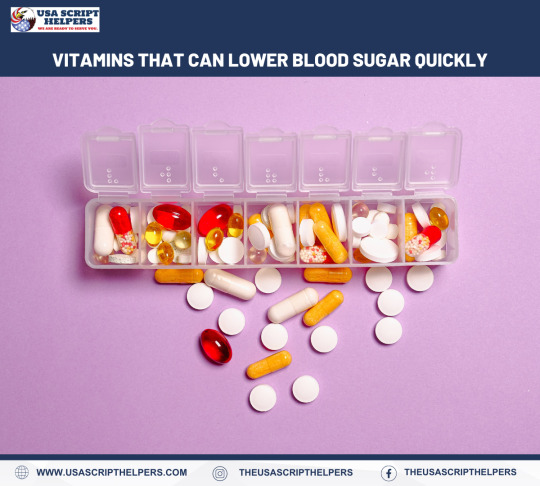
VITAMINS THAT CAN LOWER BLOOD SUGAR QUICKLY
Balancing blood sugar levels is crucial for maintaining overall health, especially for individuals with diabetes or those at risk of developing the condition. While diet, exercise, and medication play primary roles in managing blood sugar, certain vitamins and supplements can also significantly impact glucose control. This article explores vitamins known for their potential to lower blood sugar levels quickly and efficiently.
Vitamin D
Vitamin D plays a pivotal role in blood sugar regulation by enhancing the body's sensitivity to insulin, the hormone responsible for managing blood glucose levels. Insulin resistance is a common issue in individuals with type 2 diabetes, where the body fails to use insulin effectively, leading to elevated blood sugar levels. Studies suggest that maintaining adequate levels of vitamin D can improve insulin sensitivity and lower blood sugar, thus aiding in diabetes management.
Sources of Vitamin D:
Sunlight exposure
Fatty fish (salmon, mackerel, and sardines)
Fortified foods (milk, orange juice, and cereals)
Vitamin D supplements
Vitamin B1 (Thiamine)
Thiamine is essential for glucose metabolism, helping convert carbohydrates into energy. People with diabetes often have low levels of thiamine, which can contribute to higher blood sugar levels and complications. Thiamine supplements, particularly in the form of benfotiamine (a lipid-soluble derivative of thiamine), have been shown to improve glucose metabolism and reduce the risk of developing diabetes-related complications.
Sources of Vitamin B1:
Whole grains
Pork
Nuts and seeds
Legumes
Thiamine supplements, including benfotiamine
Vitamin B3 (Niacin)
Niacin, or vitamin B3, influences blood sugar control indirectly through its role in converting food into energy. However, high doses of niacin can increase blood sugar levels, making it necessary for individuals with diabetes or those at risk to consult a healthcare provider before taking niacin supplements.
Sources of Vitamin B3:
Turkey
Chicken breast
Peanuts
Mushrooms
Supplements, with medical guidance
Vitamin C
Vitamin C, an antioxidant, can lower blood sugar levels and help manage diabetes by improving glucose metabolism and protecting cells from damage caused by excess sugar in the blood. Research indicates that vitamin C supplementation can help reduce fasting blood sugar levels and improve blood sugar control in people with type 2 diabetes.
Sources of Vitamin C:
Citrus fruits (oranges, lemons, and grapefruits)
Kiwi
Strawberries
Bell peppers
Supplements
Magnesium
Though not a vitamin, magnesium is a crucial mineral that aids in blood sugar control. It plays a significant role in glucose metabolism and insulin action. Low levels of magnesium are linked to insulin resistance, a condition often preceding type 2 diabetes. Increasing magnesium intake through diet or supplements can improve insulin sensitivity and lower blood sugar levels.
Sources of Magnesium:
Spinach
Pumpkin seeds
Almonds
Avocado
Supplements
Chromium
Another essential mineral for blood sugar regulation is chromium. It enhances the action of insulin and is involved in carbohydrate, fat, and protein metabolism. Some studies suggest that chromium supplementation can have a beneficial effect on blood sugar levels, especially for those with diabetes.
Sources of Chromium:
Broccoli
Whole grains
Green beans
Nuts
Supplements
Conclusion
While vitamins and minerals can support blood sugar management, they should complement, not replace, standard treatments such as medication, a balanced diet, and regular physical activity. Always consult a healthcare provider before starting any new supplement, especially if you have diabetes or other health conditions, to ensure it's safe and appropriate for your specific health needs. By integrating these vitamins and minerals into a holistic approach to health, individuals can achieve better blood sugar control and improve their overall well-being.
#usascriphelpersofficial#diabetes care#diabetes treatment#diabetes mellitus#diabetes management#diabetes symptoms#insulin#diabetic#doctors#type 1 diabetic#type 2 diabetes
4 notes
·
View notes
Text
Managing IBS After a Stressful Period and Gallbladder Removal: The Power of Supplements and nature
Living with Irritable Bowel Syndrome (IBS) can be challenging, especially after experiencing a long and stressful period in life, coupled with the removal of the gallbladder. It took me two years to finally start managing the flare ups that have become my daily struggle in the past two years since i had my surgery. However, there is hope in managing IBS symptoms and finding relief. In this blog post, I will explore the benefits of specific supplements, such as omega-3, zinc, B-complex, B1, vitamin D, and magnesium citrate, and how they can help alleviate IBS flare-ups over time.
Omega-3 fatty acids are essential for overall health and have been found to have anti-inflammatory properties. In the context of IBS, omega-3 can help reduce inflammation in the gut, which is often associated with flare-ups. Incorporating omega-3 supplements into your daily routine can potentially improve IBS symptoms, such as abdominal pain, bloating, and diarrhea. Adding the omega in my supplement routine made a huge difference in my overall health.My gut is happy.
Zinc is a vital mineral that plays a crucial role in various bodily functions, including digestion and immune system support. Studies have shown that individuals with IBS may have lower zinc levels, which can contribute to worsened symptoms. By supplementing with zinc, you can potentially restore the balance and alleviate IBS-related discomfort. The pharmacist suggested it to me several months ago calling it the supplement of the future. It helps with the healing and inflammation and enhances the benefits the other supplements are providing.
B vitamins, particularly B-complex, are essential for maintaining optimal gut health. These vitamins help convert food into energy, support the nervous system, and aid in the production of healthy red blood cells. When it comes to IBS, B-complex vitamins can help regulate digestion, reduce stress, and improve overall gut function. The one bellow I found to be the best.
B1, also known as thiamine, vitamin B1 is a crucial nutrient that supports the nervous system and helps convert carbohydrates into energy. In the context of IBS, B1 can help alleviate symptoms such as fatigue, brain fog, and digestive issues. By supplementing with B1, individuals may experience improved energy levels and reduced IBS-related discomfort. It is also very effective if you are diagnosed with SIBO.
Vitamin D is not only essential for bone health but also plays a role in immune function and inflammation regulation. Studies have suggested a potential link between vitamin D deficiency and IBS symptoms. By ensuring adequate vitamin D levels through supplementation, individuals may experience reduced inflammation and improved IBS symptoms. My doctor measured my vitaamin D levels which were a bit on the low side and supplemented me with 5000u of vitamin D.
Magnesium is a mineral that plays a vital role in muscle relaxation and nerve function. In the context of IBS, magnesium citrate can help alleviate constipation, a common symptom experienced by individuals with IBS. By promoting regular bowel movements, magnesium citrate can provide relief and improve overall gut function. The Magnesium Citrate is gentle on the stomach lining and thats why this is the one that is recommended.
Digestive enzymes play a crucial role in our overall digestive health. These enzymes are responsible for breaking down the food we eat into smaller, more easily absorbable molecules that our body can utilize for energy and nourishment. Without sufficient digestive enzymes, our body may struggle to properly digest and absorb nutrients, leading to various digestive issues.
Digestive enzymes can help alleviate the symptoms of IBS by aiding in the breakdown of food and improving digestion. They can help break down complex carbohydrates, proteins, and fats, reducing the strain on the digestive system and minimizing discomfort. Additionally, digestive enzymes can enhance nutrient absorption, ensuring that the body receives the necessary vitamins, minerals, and other essential nutrients.
There are different types of digestive enzymes, each targeting specific types of food molecules. For example, amylase helps break down carbohydrates, protease aids in protein digestion, and lipase assists in the breakdown of fats. By supplementing with these enzymes, individuals with IBS can support their digestive system and control the flare ups.
In addition to incorporating digestive enzymes there are also benefit from making dietary and lifestyle changes. This may include following a low-FODMAP diet, which eliminates certain types of carbohydrates that can trigger IBS symptoms. Regular exercise, stress management techniques, and adequate hydration are also important for maintaining a healthy digestive system.
In conclusion, digestive enzymes play a vital role in supporting digestive health, and they can be particularly beneficial for individuals with IBS. By aiding in the breakdown of food and improving nutrient absorption, digestive enzymes can help alleviate symptoms and improve overall well-being. However, it’s essential to work with a healthcare professional to determine the appropriate use and dosage of digestive enzymes, as part of a comprehensive treatment plan for IBS.
Psyllium is a soluble fiber derived from the seeds of the Plantago ovata plant. It is commonly used as a dietary supplement and is known for its ability to promote regular bowel movements and relieve constipation. In the context of IBS, psyllium can help regulate bowel movements, reduce diarrhea, and alleviate abdominal discomfort. The fiber in psyllium absorbs water in the intestines, adding bulk to the stool and promoting healthy digestion. Additionally, psyllium can help regulate gut motility and improve overall gut health, which can be beneficial for individuals with IBS.
Managing IBS after a long stressful period and gallbladder removal can be challenging, but incorporating specific supplements into your daily routine can make a significant difference. Omega-3, zinc, B-complex, B1, vitamin D, and magnesium citrate all offer potential benefits in alleviating IBS symptoms over time. However, it is important to consult with a healthcare professional before starting any new supplement regimen to ensure it is safe and suitable for your individual needs. Remember, finding relief from IBS is a journey, and with the right approach, you can regain control of your digestive health and improve your overall well-being.
Remember, managing IBS requires a comprehensive approach that may include dietary modifications, stress management, and other lifestyle changes in addition to potential supplements or treatments.
Good luck.🪷
2 notes
·
View notes
Text
Is Sourdough Bread Good for Weight Loss? - A Healthier Choice
Sourdough bread, a staple in many cultures for centuries, has recently seen a resurgence in popularity. But beyond its unique taste and texture, there’s growing interest in its potential health benefits, particularly regarding weight loss. This report delves into the making of sourdough, its health and fermentation benefits, nutritional profile, and expert opinions to answer the question: Is sourdough bread good for weight loss?
Tea Burn™ Breakthrough in Weight Loss Support
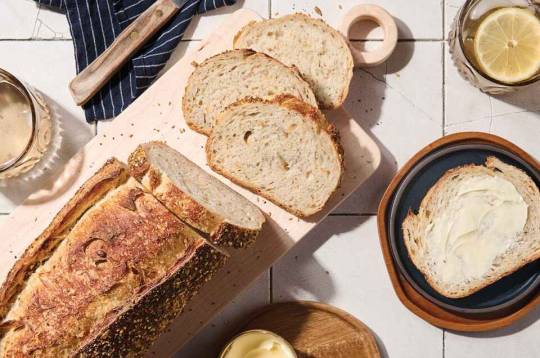
Making of Sourdough
Sourdough’s simplicity is one of its key attractions. Traditionally, it’s made from just three ingredients: flour, water, and salt. This simplicity is a stark contrast to many commercially produced breads that contain a plethora of additives. The slow fermentation process of sourdough, where natural yeasts and bacteria interact with the dough, is what sets it apart. This process not only imparts a distinct tangy flavor but also influences the bread’s health properties.
Odd Water Secret Melts Stubborn Fat
Sourdough Health Benefits
Sourdough’s health benefits are closely tied to its fermentation process. Priya Tew, an award-winning dietitian, explains, “Genuine sourdough bread can be more easily digested and can be lower in glycemic index than some shop-bought bread.” This lower glycemic index means sourdough doesn’t spike blood sugar levels as sharply as other breads, which is a crucial factor in weight management.
Gut Health: The fermentation process increases prebiotic and probiotic-like properties, which can improve gut health. Sourdough made with whole grains offers additional fiber, enhancing these gut-friendly benefits.
Digestion: Sourdough might improve the digestion of gluten due to changes in wheat enzymes during fermentation. While not suitable for people with celiac disease, those sensitive to gluten might find sourdough easier to digest.
Healthy Aging: Sourdough, a staple in the Mediterranean diet, is linked to healthy aging. It has antioxidant, anti-hypertensive, anti-diabetic, and FODMAP-reducing qualities.
Shrink X™ Powerful Pet Probiotic Formula
Sourdough Fermentation Benefits:
The fermentation process in sourdough bread leads to an increase in prebiotic and probiotic-like properties, which are beneficial for gut health. A 2021 review in the journal Microorganisms highlights this, noting that these properties help improve gut health. Additionally, the fermentation process enhances the bioavailability of nutrients like calcium, phosphorus, and iron, making them more accessible to the body.
Nutritional Profile:
A slice of sourdough bread typically contains about 84 calories, 16 grams of carbohydrates, 1 gram of fiber, 3 grams of protein, and 1 gram of total fat. Laura Tilt, a registered dietitian, points out, “White sourdough is a source of carbohydrates, calcium, iron, vitamin B1, and B3, forming part of a healthy diet.” However, she advises opting for wholewheat varieties for higher fiber content.
Facts about Sourdough Bread
Historical Popularity Surge: Sourdough’s recent popularity isn’t just a modern trend. Its global market value skyrocketed from $298.7 million to a staggering $2.4 billion in 2018. This surge reflects a growing awareness and appreciation of sourdough’s unique qualities and health benefits.
Enhanced Taste with Health Benefits: The fermentation process in sourdough not only contributes to its health benefits but also enhances its taste. Priya Tew notes that fermentation produces amino acids that add extra flavor, despite a decreased salt content in the bread. This means you get a tasty bread that’s also good for you.
B12 Enrichment: The fermentation of plant-based foods like sourdough can lead to the enrichment of vitamin B12. This is particularly noteworthy since B12 is typically associated with animal-based foods, making sourdough a valuable addition to vegetarian diets.
Impact on Blood Sugar Levels: Sourdough bread’s fermentation process results in a lower glycemic index compared to regular bread. This means it has a less dramatic impact on blood sugar levels, making it a smarter choice for those managing diabetes or looking to maintain stable energy levels throughout the day.
Variety in Sourdough Types: The diversity of sourdough bread is vast. From traditional white sourdough to wholewheat and rye varieties, each type offers different nutritional benefits. For instance, rye sourdough is known for its higher fiber content, while traditional white sourdough is fortified with essential vitamins and minerals.
Expert Opinion of Sourdough Bread on Weight Loss:
Experts agree that sourdough can be part of a weight loss diet. Tilt reminds us, “All foods can be part of a weight loss diet; it’s about balance and portion size.” She suggests pairing sourdough with nutrient-dense foods like eggs or nut butter for a balanced meal. The high fiber content in sourdough, especially in wholegrain varieties, is linked to feeling full for longer, which is beneficial for weight management.
Promote Deep Sleep and Relaxation
FAQs around Is Sourdough Bread Good for Weight Loss?
Can sourdough bread help in weight loss?
Yes, sourdough bread can be part of a weight-loss diet. Its high fiber content, especially in wholegrain varieties, helps you feel full longer, which can aid in managing calorie intake.
Is sourdough bread lower in calories than regular bread?
Sourdough bread’s calorie content is comparable to many other types of bread. However, its nutritional composition, particularly its lower glycemic index, makes it a healthier choice that can fit into a weight loss diet.
Does sourdough bread cause blood sugar spikes?
Sourdough bread has a lower glycemic index compared to many other breads, meaning it causes a slower and less dramatic rise in blood sugar levels. This makes it a suitable option for those managing blood sugar levels.
Can I eat sourdough bread every day if I’m trying to lose weight?
Yes, you can include sourdough bread in your daily diet while trying to lose weight. Remember, balance and portion control are key. Pairing it with nutrient-dense foods can make your meals more satisfying and nutritionally balanced.
Is sourdough bread better than whole wheat bread for weight loss?
Sourdough and whole wheat breads each have their benefits. Sourdough’s fermentation process can make it easier to digest and lower in glycemic index, while whole wheat bread is typically higher in fiber. Your choice may depend on personal dietary needs and preferences.
Does the type of flour used in sourdough affect weight loss?
Yes, the type of flour affects the nutritional content of sourdough bread. Wholegrain flours are higher in fiber and nutrients compared to refined flours, making them a better choice for weight loss.
Is sourdough bread gluten-free?
No, traditional sourdough bread is not gluten-free as it is made from wheat flour. However, the fermentation process can break down some of the gluten, making it easier to digest for those with mild gluten sensitivities, but it is not suitable for individuals with celiac disease.
Life Extension GEROPROTECT Stem Cell
Sourdough bread, with its unique fermentation process and nutritional profile, offers several health benefits that can support weight loss goals. Its lower glycemic index, coupled with a higher fiber content, especially in wholegrain varieties, makes it a healthier choice compared to many other breads. While sourdough alone isn’t a magic bullet for weight loss, it can be a valuable part of a balanced and nutrient-rich diet. Variety and moderation are key to a healthy diet and effective weight management.
2 notes
·
View notes
Text
guide to vegan vitamin b 12
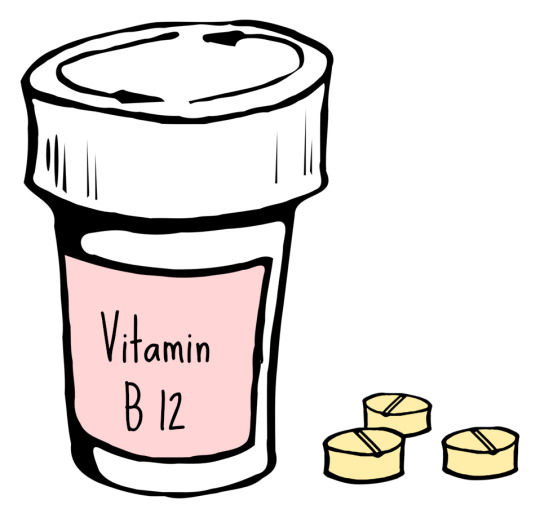
Vitamin B12 deficiency is a topic that comes up often when people talk about veganism. But it is quite easy to maintain a healthy level of Vitamin B12 on a plant – based diet.
This is often due to limited dietary intake, malabsorption, medical conditions, or the use of B12-depleting medications.
Vitamin B12 is the by-product of bacterial activity - a process that only takes place in the digestive system of animals. Therefore, the nutrient is not found in plant-based foods. The only reliable sources of vitamin B12 on a plant-based diet are fortified foods and drinks or supplements.
signs and symptoms of vitamin b 12 deficiency
1. Fatigue
2. Pale or yellow skin
3.Headaches
4. A greater risk of developing depression
5. Pale or yellow skin
6. Gastrointestinal issues
7. Difficulty concentrating and mental impairment
8. Pain and inflammation of the mouth and tongue
9. The corners of the mouth are split.
10. Pins and needles in hands and feet
11. Muscle cramps and muscle weakness.
reliable sources of vegan b 12
Fortified foods & drinks: L
Look for plant milks, non – dairy yoghurts, breakfast cereals, spreads, yeast extracts, tofu and nutritional yeast products that are fortified with vitamin B 12.
Supplements:
Vitamin B1 2 supplements should be taken as part of a B-complex supplement, and ideally together with a multi – vitamin.
Vitamin B 12 injections:
These are inexpensive and effective.
With thanks to The Vegetarian Resource Group, The Vegan Society & Happy Cow.
Image found on Pinterest. No source.
#vegan#veganism#go vegan#vegan supplements#plant based supplements#vitamin b 12#plant based vitamin b 12
7 notes
·
View notes
Text
Good Solid Advice About Vitamins And Minerals That Anyone Can Use
Success in health is something elusive to many. They may start to eat a cleaner diet and even work out a few times per week, but they never feel they've achieved optimal health. What they are missing is vitamins and minerals, and the following tips and tricks should help you learn about this topic.
Thiamine, or vitamin B1, deficiency can cause neurological and psychiatric symptoms. These symptoms can include weight loss, weakness, irregular heart rate and psychosis. A vitamin B complex can ensure you receive the vitamin B1 you need, or you can eat pork, brown rice, liver, oatmeal, leafy vegetables, eggs and potatoes.
Never ignore the product warnings on vitamin levels. Vitamin and supplements can have serious side effects when taken with prescription and over the counter medicines. Ginseng can be very dangerous if you have high blood pressure or take heart medications. Lycopene can be deadly if you have a tomato allergy. Always read the warning labels or ask your pharmacist or doctor before taking any vitamins or supplements.
Two of the best sources for vitamin D are exposure to the sun and milk. If you are not a big milk drinker or do not spend a lot of time in the sun, you should take a supplement with vitamin D. Vitamin D protects your bones and keeps them from becoming brittle.
Although all vitamins and minerals are important, some are even more important for growing children. When planning your child's diet, make sure they are getting enough vitamins A, C and D, as well as the B vitamins. Calcium and iron are also very important for your growing children's bodies.
Magnesium is necessary for over 300 chemical reactions in the body. Foods high in fiber contain magnesium, including legumes, vegetables, nuts and whole grains. This mineral is used to treat high cholesterol, ADHD, fatigue, migraines, PMS and multiple sclerosis. Magnesium can also be applied topically to speed up healing.
As stated in the above article, taking vitamins and minerals is an important part of anyone's life who wants to maintain a healthy lifestyle. Now that you read some good tips about this subject there is no reason for you not to start on a healthier path. Keep at it and remember how important it is for your life to be healthy.
Read more here https://www.colourlovers.com/lover/vigrxofcstore
4 notes
·
View notes
Text
Kefir is one of the healthiest things on the planet 🌎 that you can consume.
Kefir is a fermented milk🥛that is packed with probiotics, vitamins, minerals and is a must for gut health.
🐄🌿 Benefits:
- Probiotics for gut health & boost immune system.
- Helps with digestion
- High protein & keeps you feeling full
- Contains AHA (great for your skin)
- Packed with calcium, vitamin D, and K
- Helps improve sleep quality
- Great for blood sugar and cholesterol
- Anti inflammatory
- Has B12. Important for red blood cell formation & neurological function.
- Has Biotin and B1 (thiamine) which helps converts food into energy and helps promote healthy skin, hair & brain function.
- Has antibacterial properties
+ more 🐮
**please consult with your doctor if you have stomach issues, a weak immune system, diabetes or are unsure if you can combine probiotics with your medication 💗
78 notes
·
View notes
Text



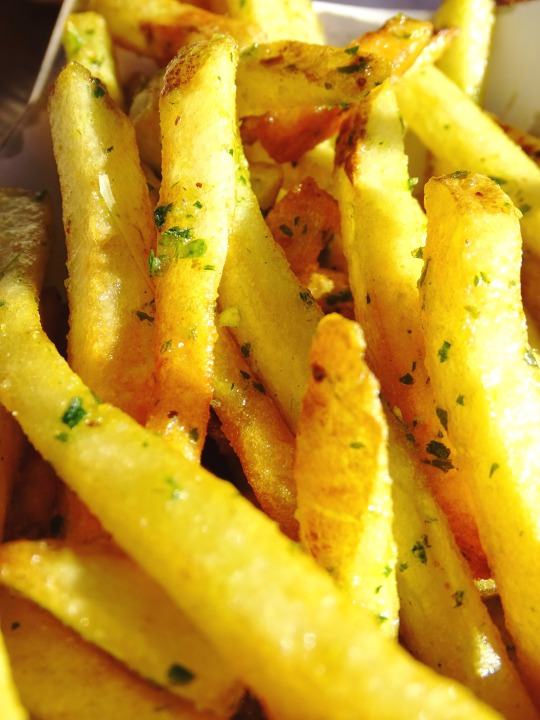
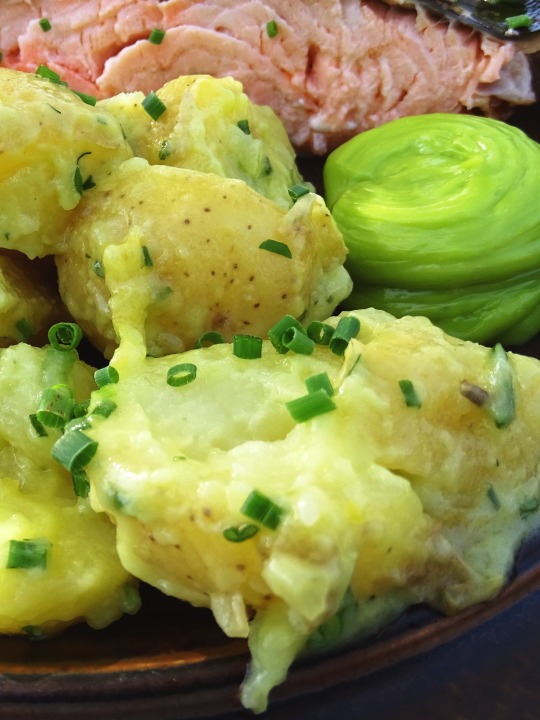

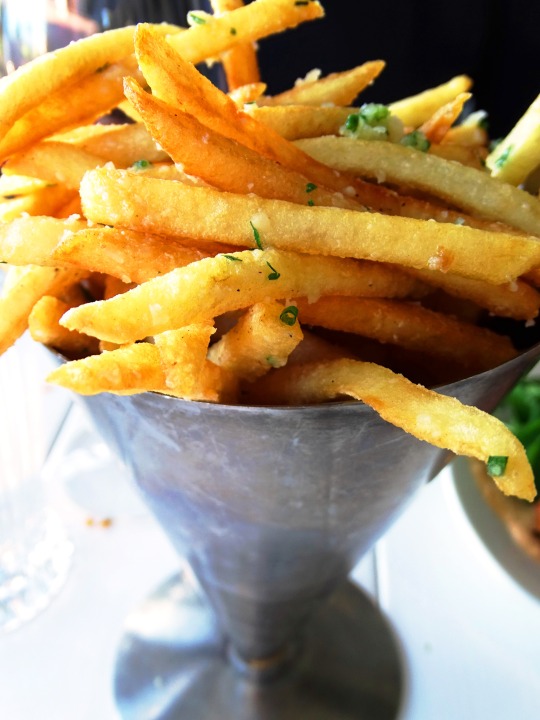

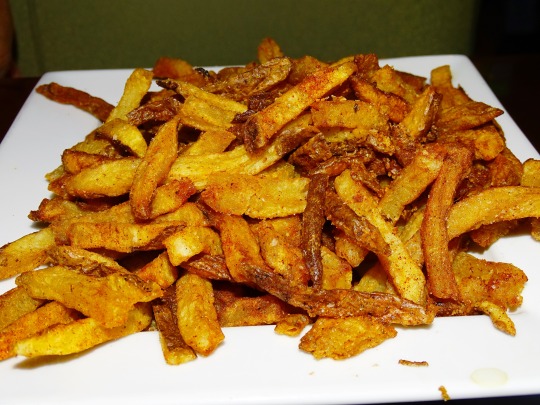
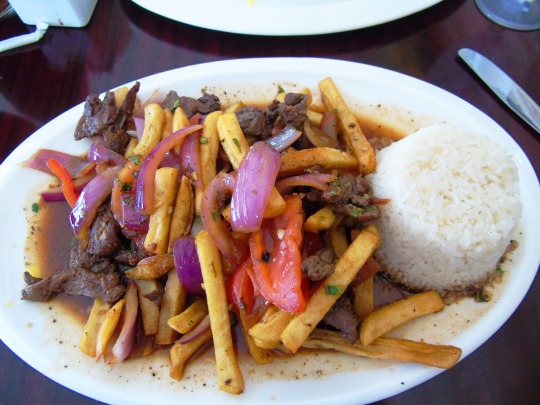


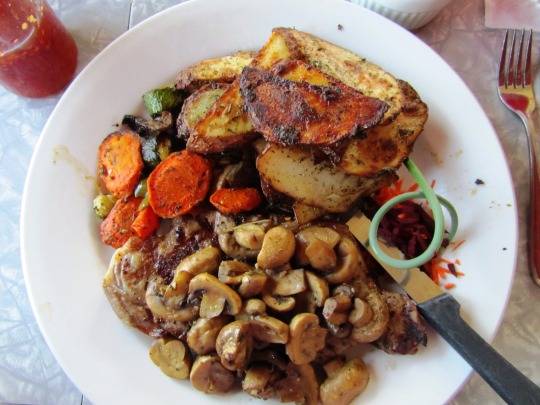

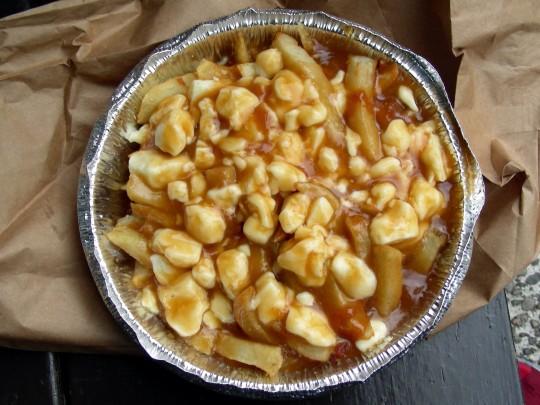
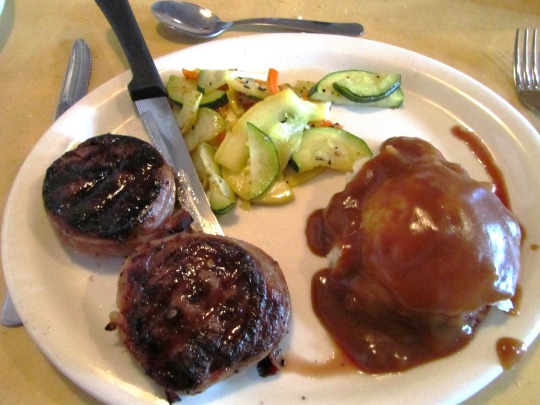

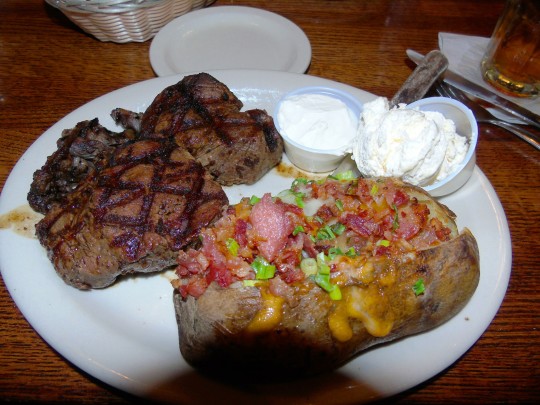
National Potato Day
National Potato Day is celebrated on August 19 of every year. For centuries, potatoes are the favorite item of diets everywhere in the world. Potato lovers are found in massive numbers, and that primarily includes the children. With the soft, smooth nature, potatoes can be eaten in different forms like potato chips, mashed potatoes, gratin, hash-browns, baked potatoes, potato salad, hasselbacken, home fries, tater skins, potato cake, potato wedges, kroppkaka, and the list extends in number. They are just some of the amazingly tasty items which are made with the potatoes. Celebrating National Potato Day is worth noting as to let people know the nourishment it has. Potatoes are not only the savory, but they also contain high levels of vital vitamins and minerals that include vitamin C, iron, and potassium. Prepare your favorite potato recipe in a way to celebrate National Potato Day.
“My idea of heaven is a great big baked potato and someone to share it with.” – Oprah Winfrey
History of National Potato Day
The origin and the person who established the National Potato Day is still anonymous. However, the history of potato dates back to centuries ago. The English word potato has all the way came from the Spanish word patata. The word “potato” may indicate either to the plant itself or the edible tuber. Usually, the potato is a starchy, tuberous vegetable from the perennial nightshade Solanum tuberosum. The first region where the potato was first domesticated is the modern-day southern Peru and the extreme northwestern Bolivia between 8000 and 5000 BC. From then, the potatoes have spread throughout the world and is now a staple crop in several countries. Now it is an integral part of the world’s food supply, and that is marked as the one of world’s largest food crop which ranks the fourth position following maize, wheat, and rice. The smaller potatoes are named as spuds and are associated with the 19th century. There are millions of different styles of preparation is found in the American cuisine where potatoes are a favourite part and occupy a larger parts. Potatoes are used in making bread, rolls, and pancakes, and also found as a whole in the everyday meal. The production of potatoes world wide was more than 382 million tonnes at present. Potatoes vary in colour, texture, size and shape with reapest to the region they grow. There are currently more than hundred different varieties of potatoes available in the world. National Potato Day is one form of celebration to make people understand the nutritional values present in the potatoes. Raw potato consists of water, carbohydrates, starch, sugar, dietary fiber, fat, protein, and vitamins like B1 to B6, B9, C, E, K. The mineral contents like calcium, iron, magnesium, manganese, phosphorous, potassium, and sodium are also available. It is one must have food for anyone with which almost all the dietary supplements are obtained. One most notable incident about the potato with the Ireland is the potato plague. It made the people of the entire country starve as they were reliant on the potato as their food crop. Celebrating National Potato Day highlights the note as one must have good health to live longer.
How to Celebrate National Potato Day
There are lots of interesting ways available by which you can celebrate the National Potato Day. You can add potatoes in small quantity in the daily meal you prepare. To make it spicy, prepare tasty potato fries, chips, mash potatoes with species, or cook hash browns with salt and pepper. To be more creative, you can try out a new dish yourself with potatoes and serve them hot to your friends and family. Buy Good Russian Vodka which is a distillation of potato to celebrate Potato Day in a unique way you want.
Source
#Animal style fries#street food#restaurant#travel#USA#Canada#summer 2023#original photography#vacation#Brisket Sliders with roasted Yukon Gold Potatoes#garlic fries#potato salad#baby back ribs#chips#potato puree#truffle fries#Lomo Saltado#Kimchi Fries#Cajun Fries#Poutine#mashed potatoes#loaded baked potato#Chow Line#Rösti#patatas bravas#National Potato Day#19 August#NationalPotatoDay
2 notes
·
View notes